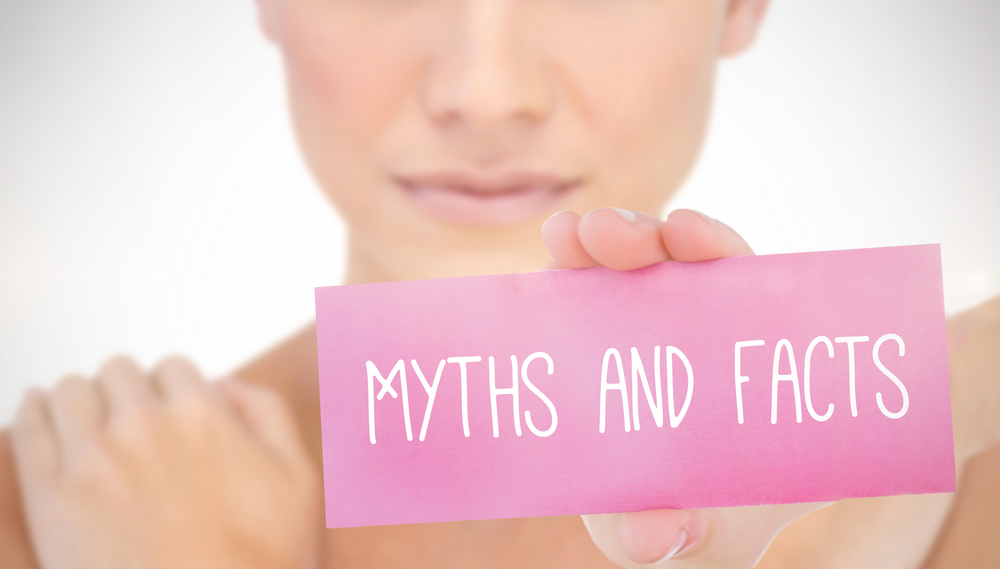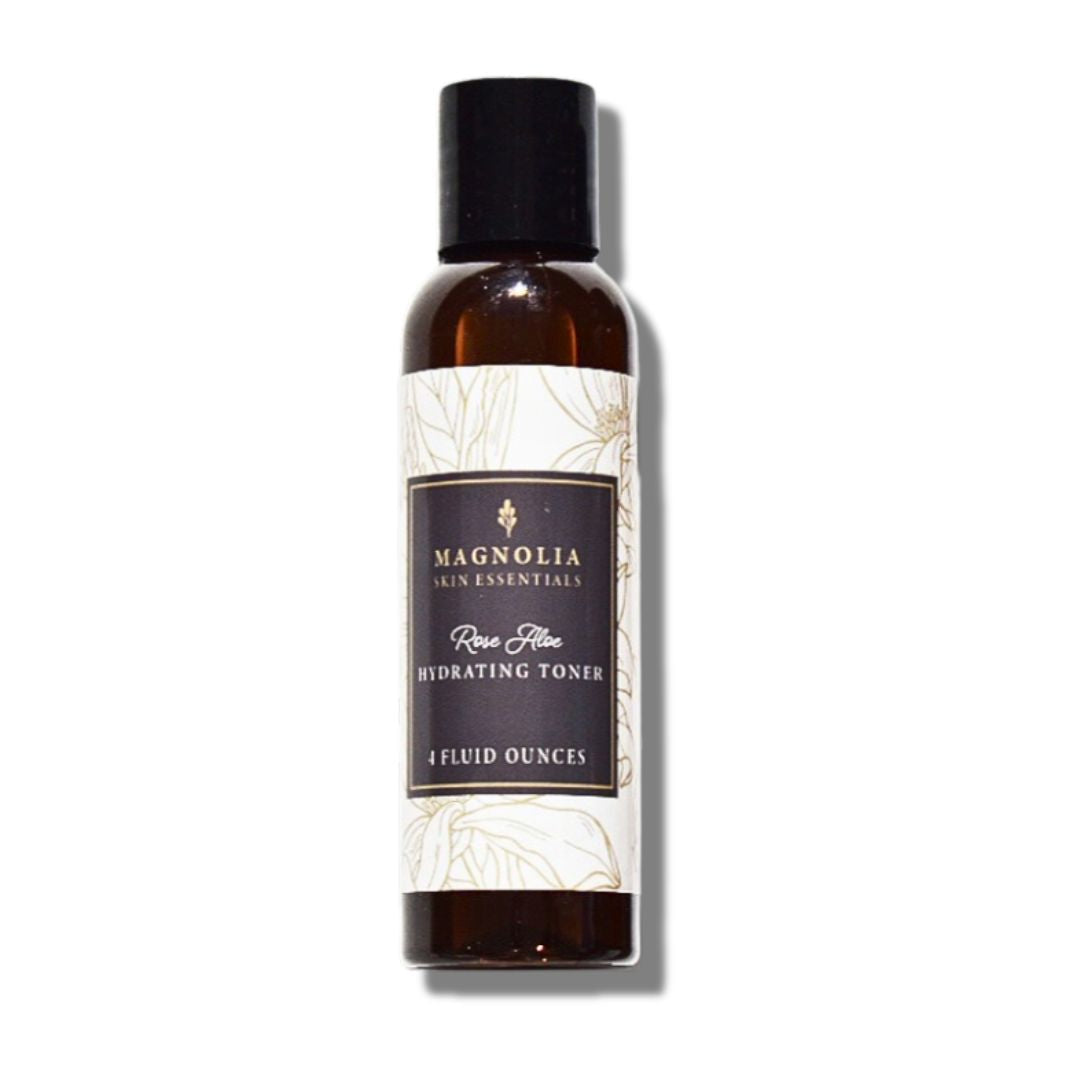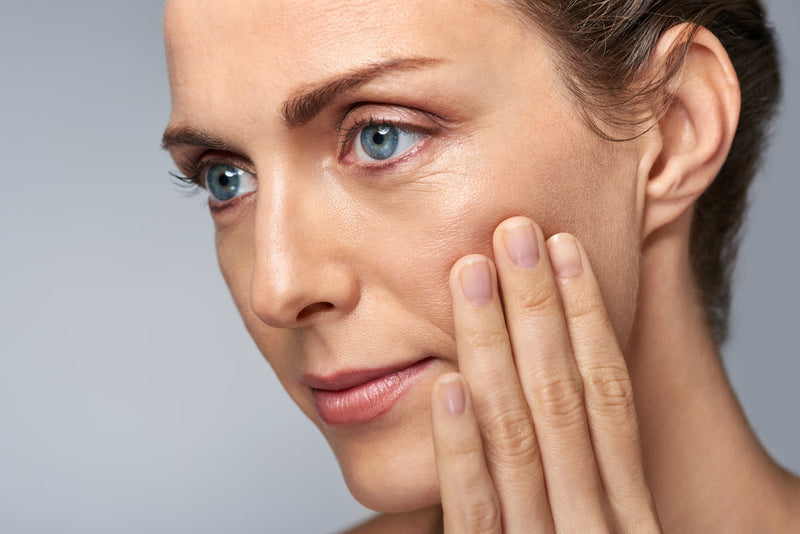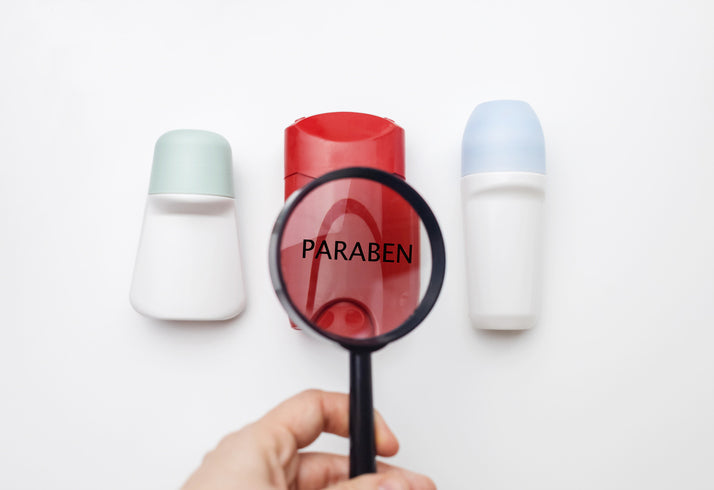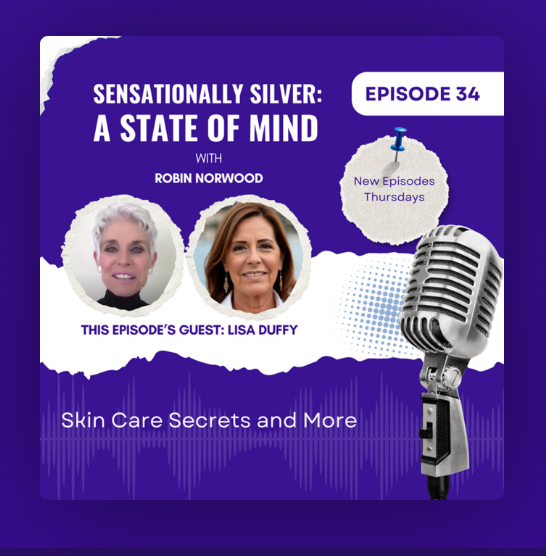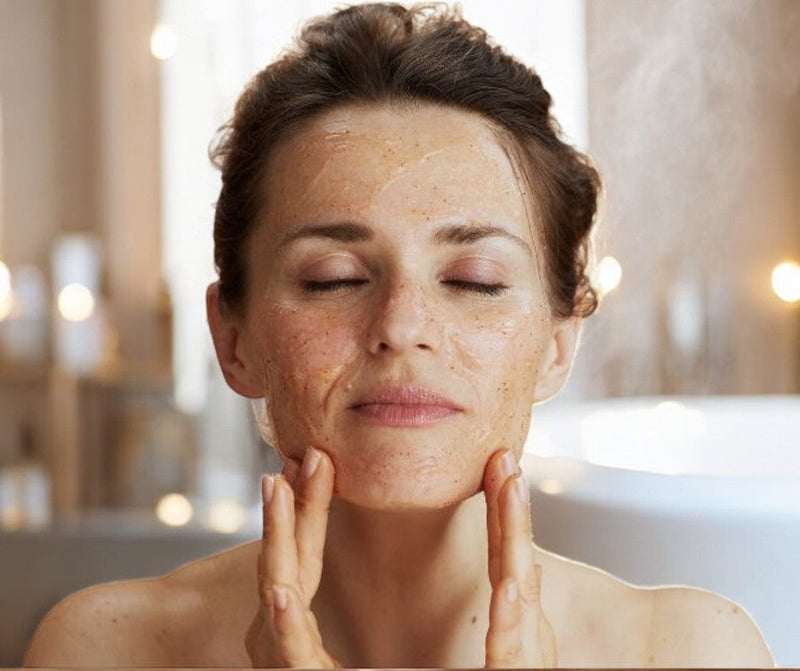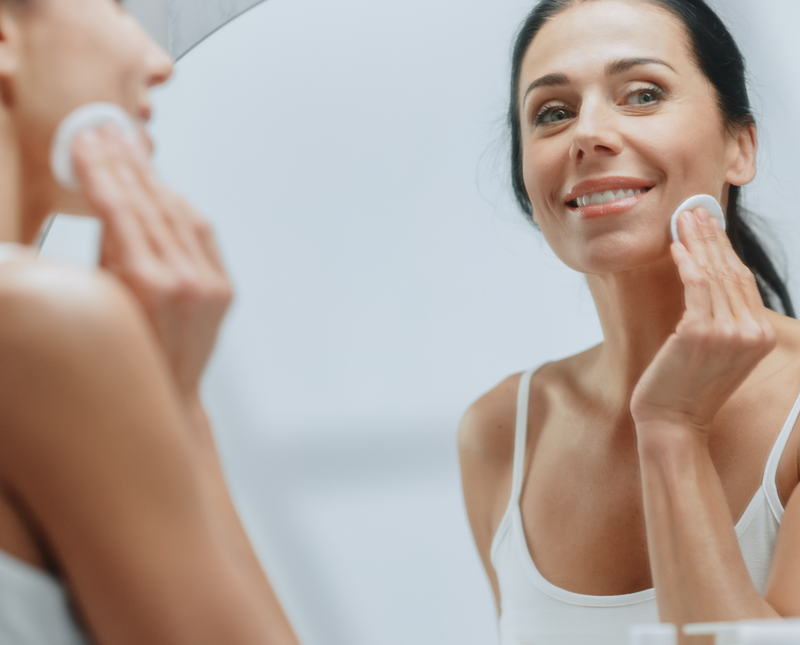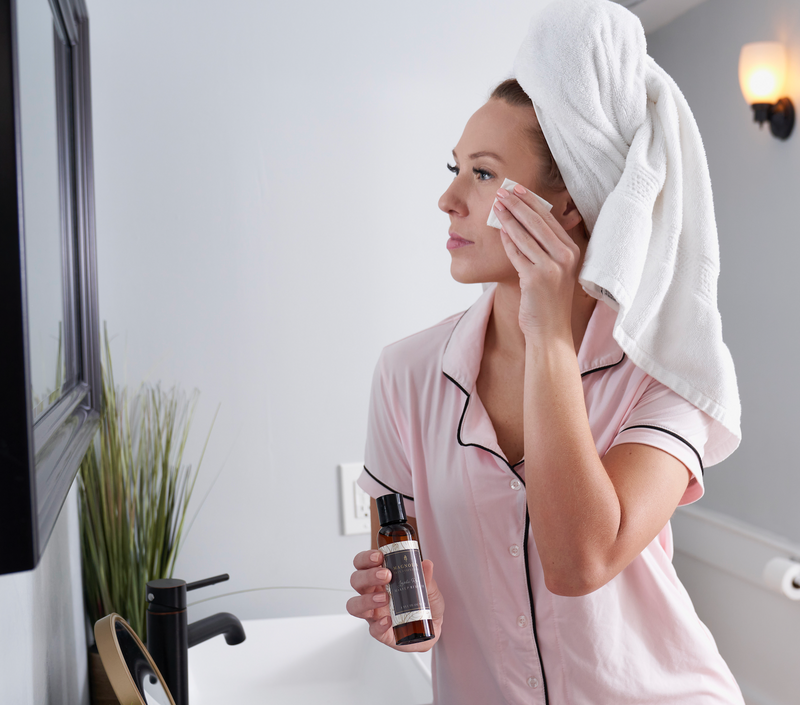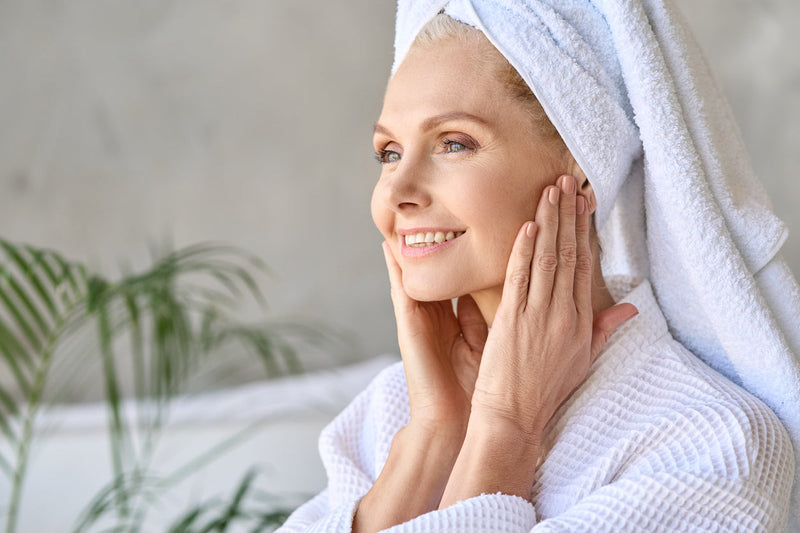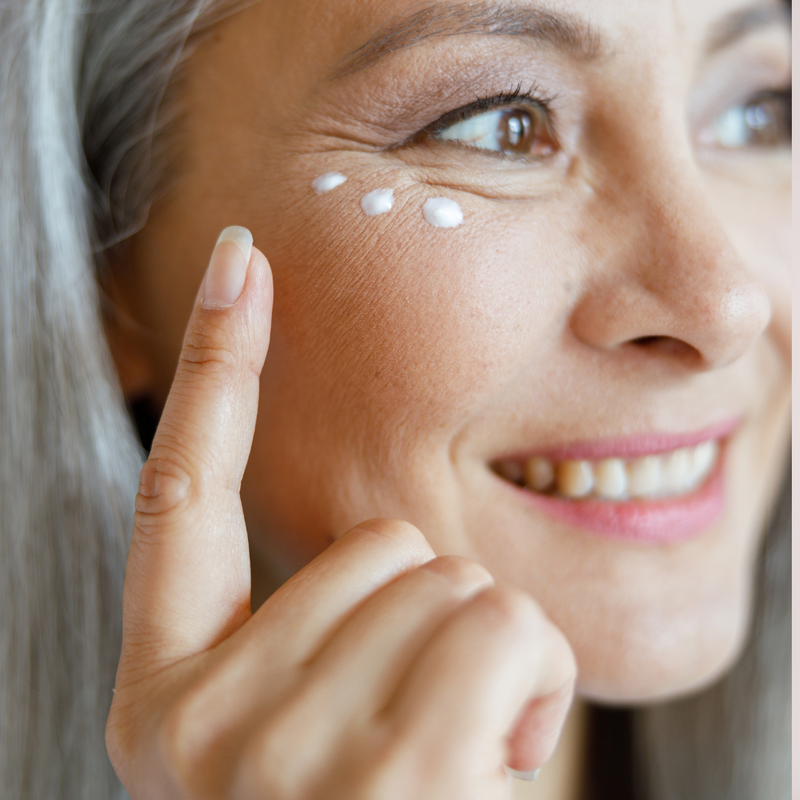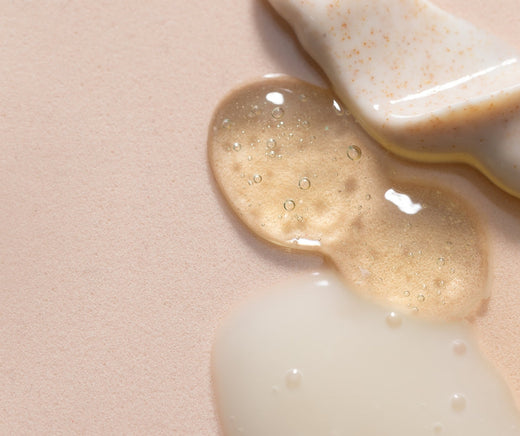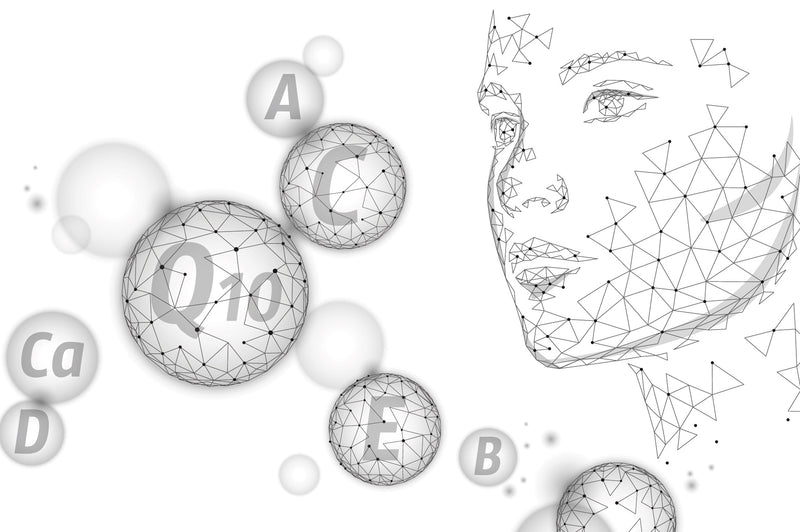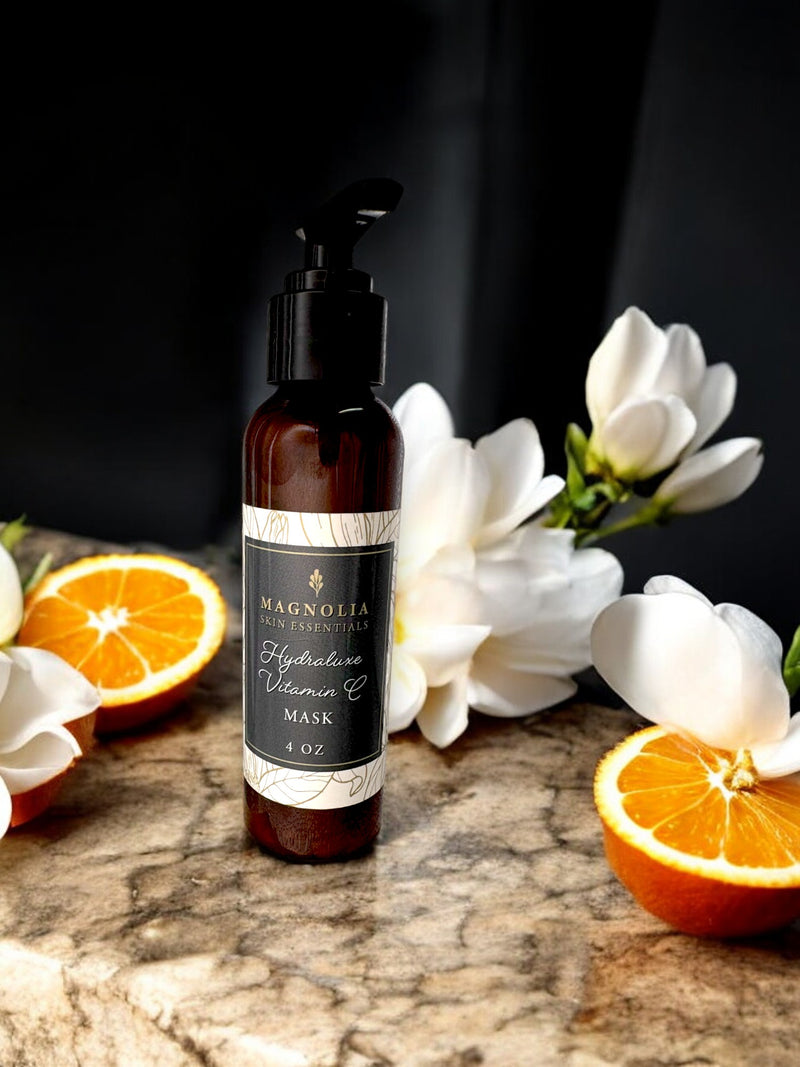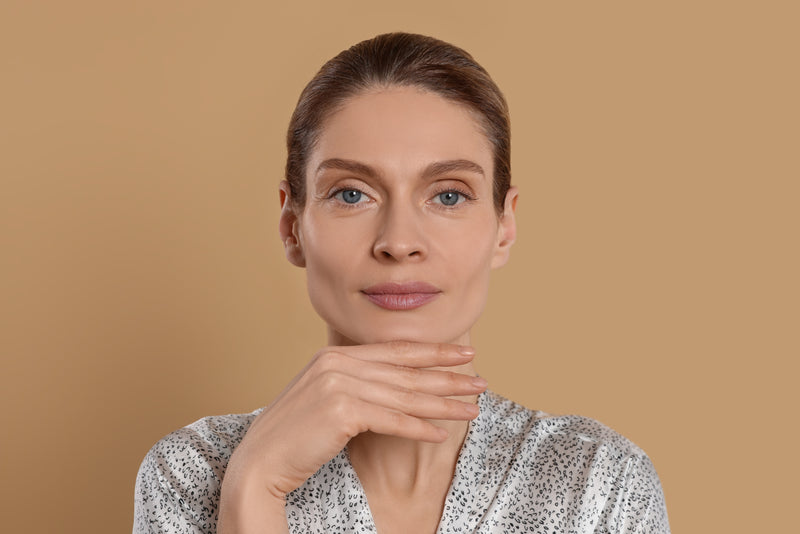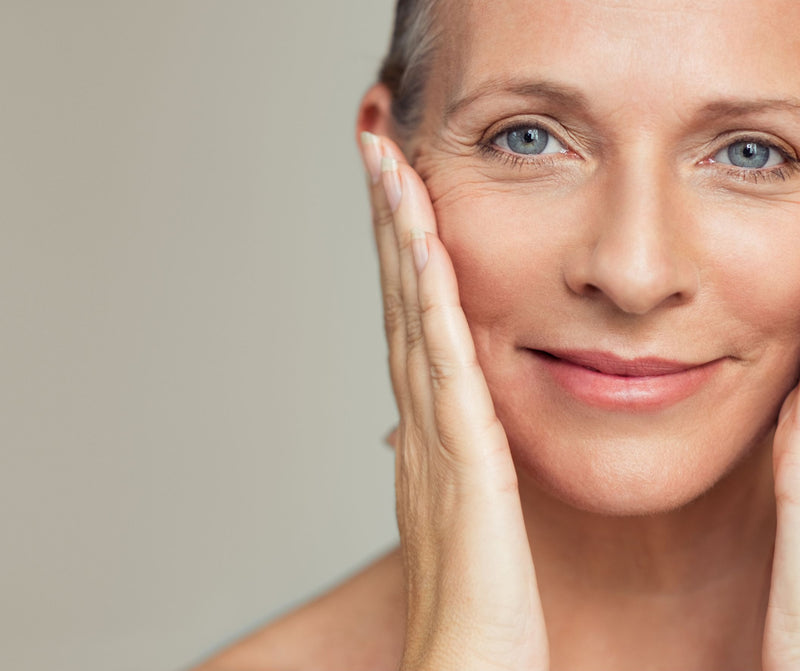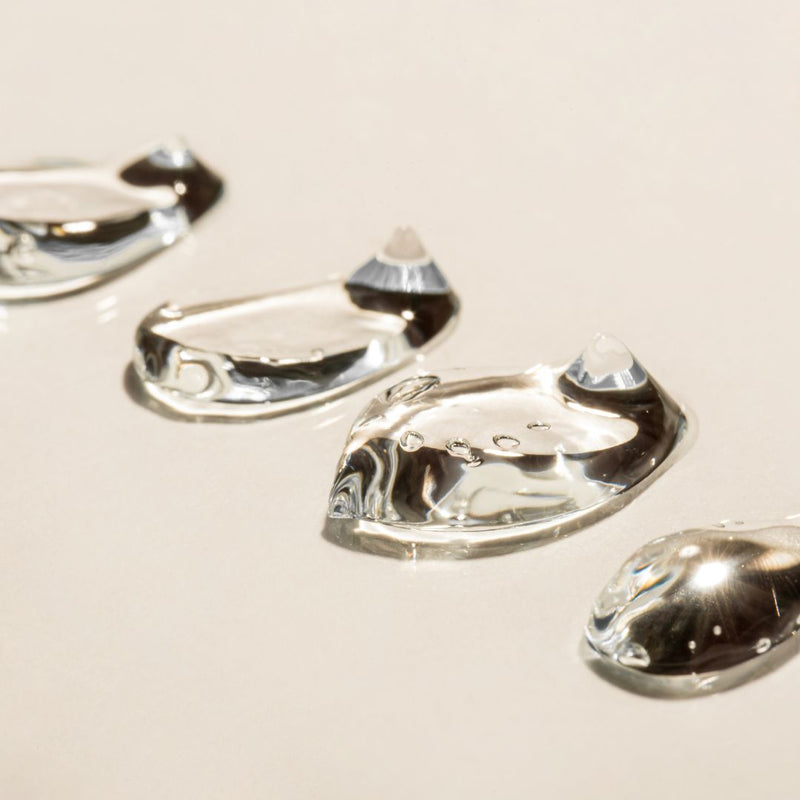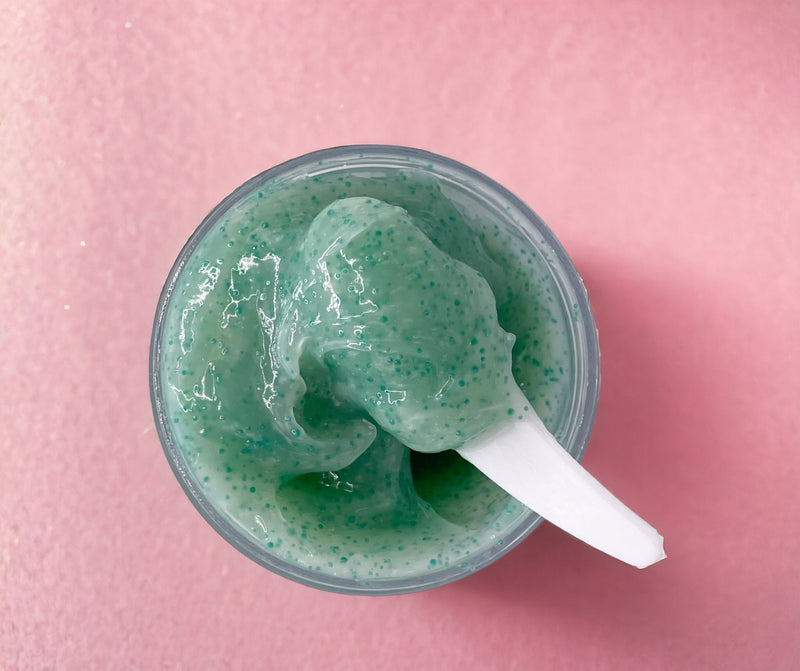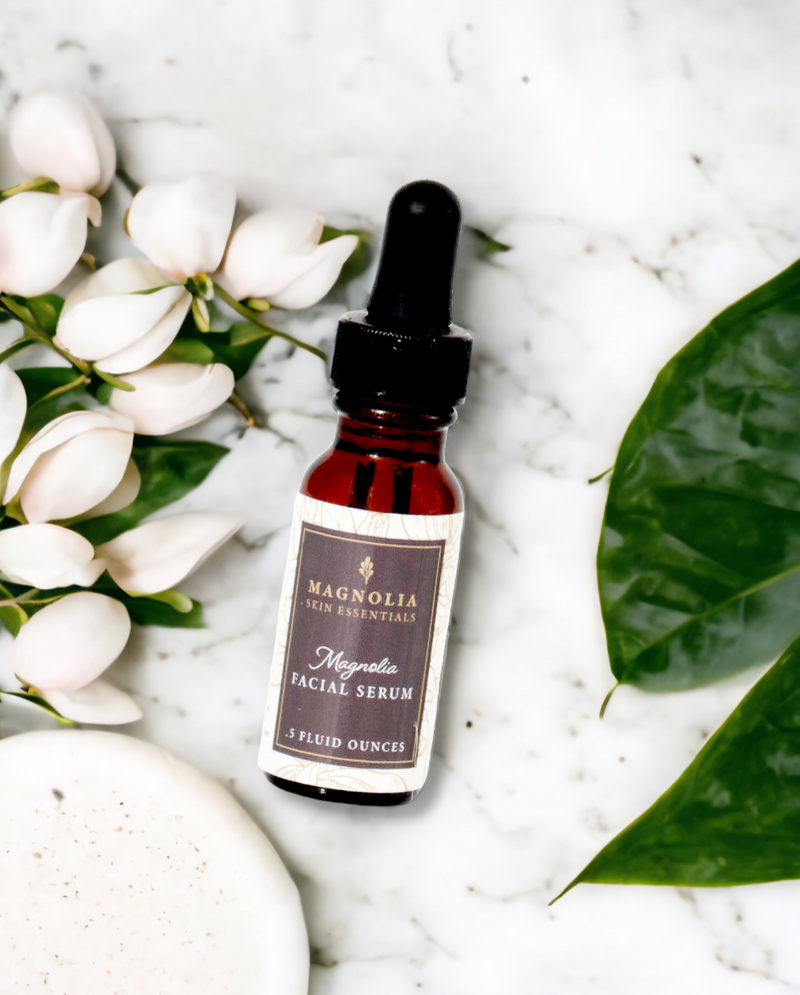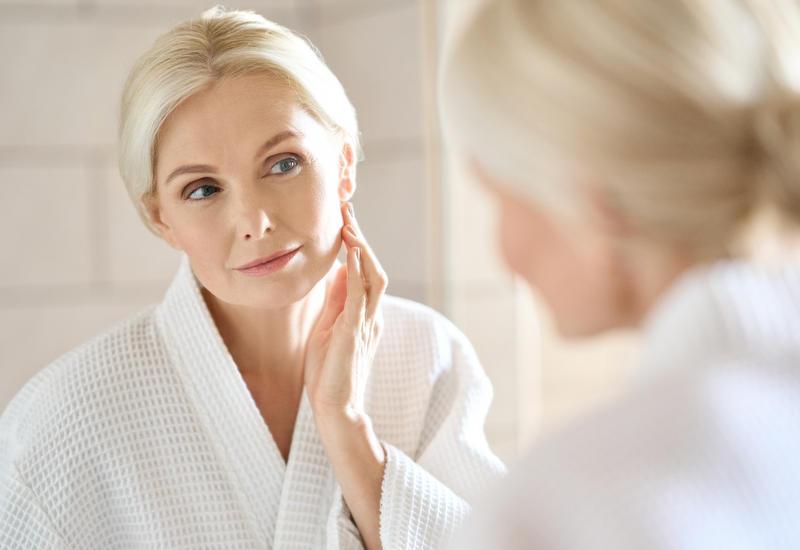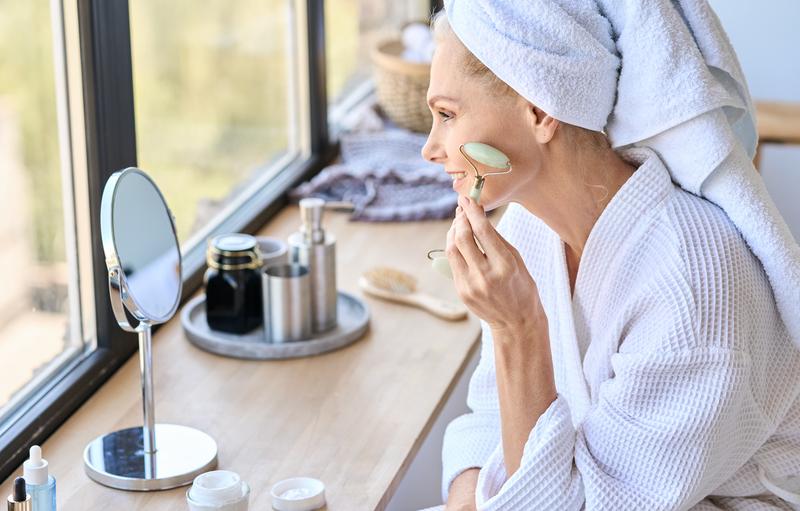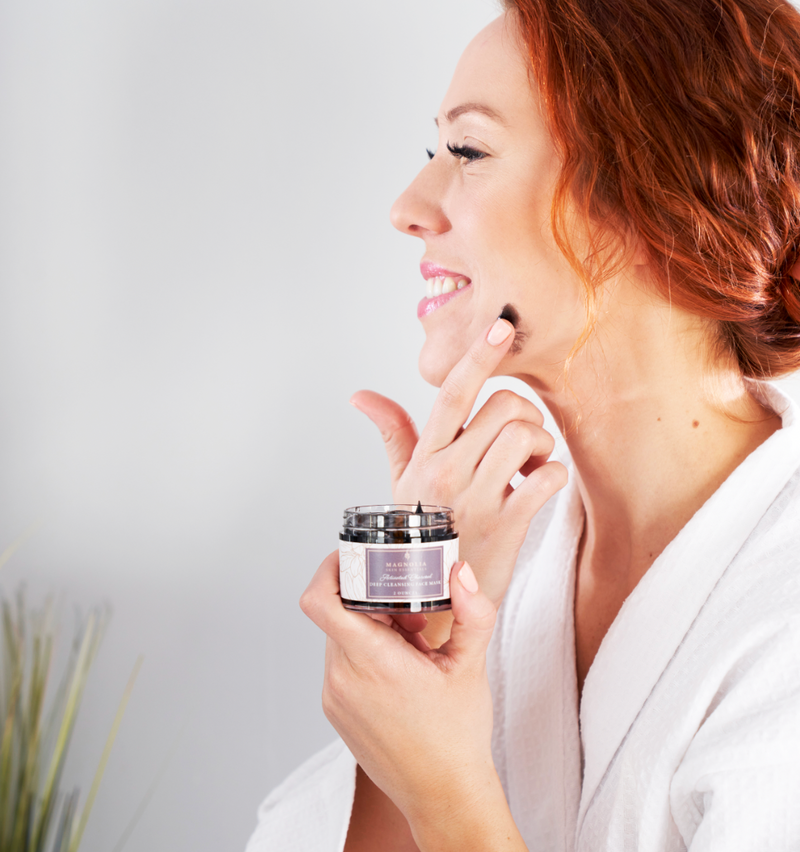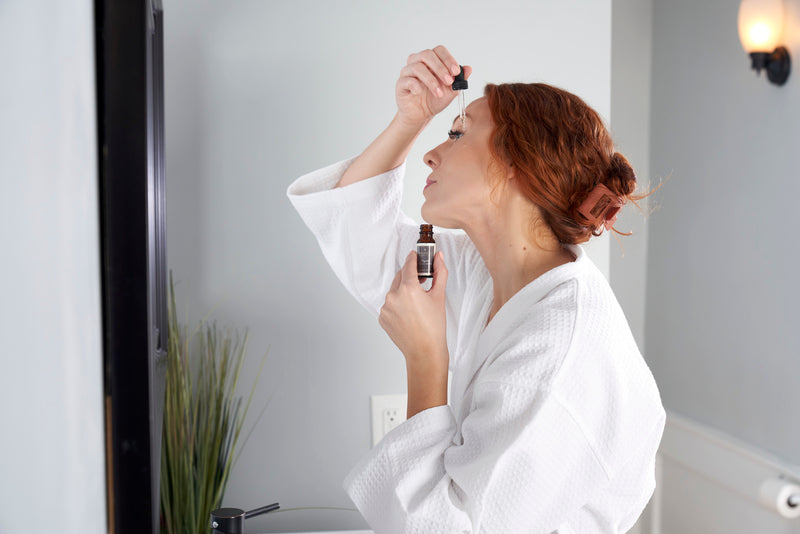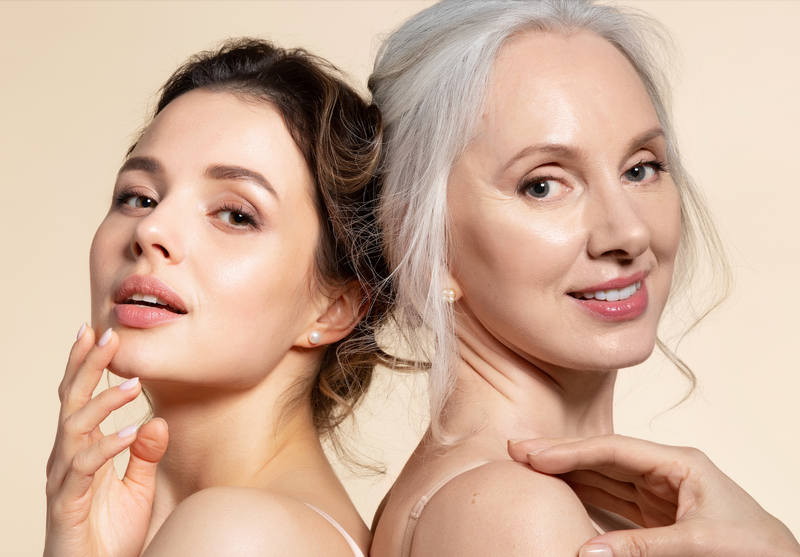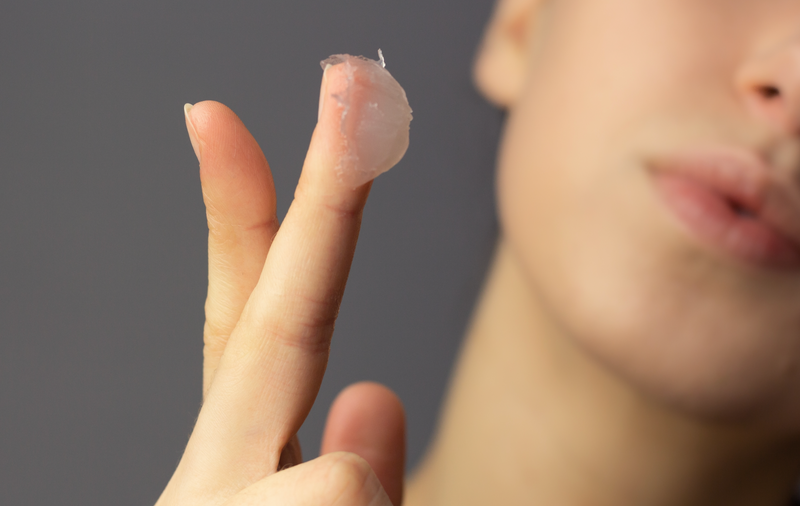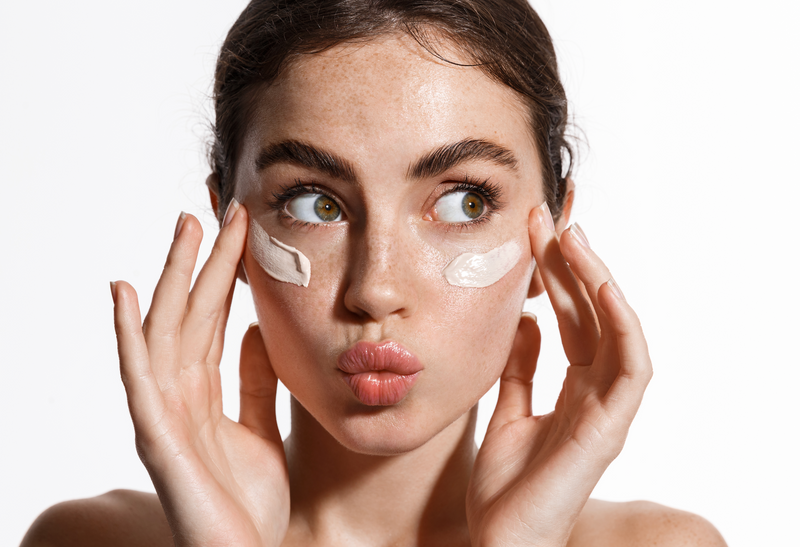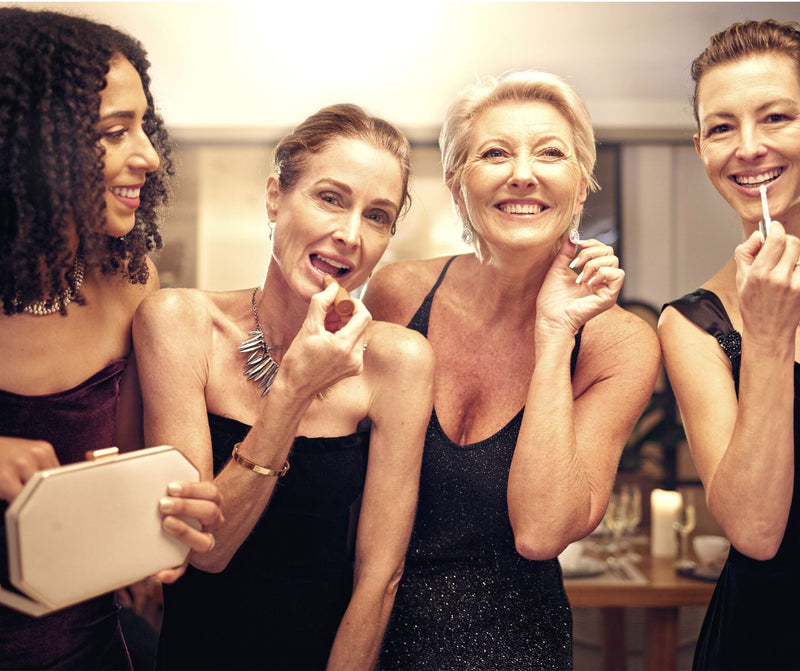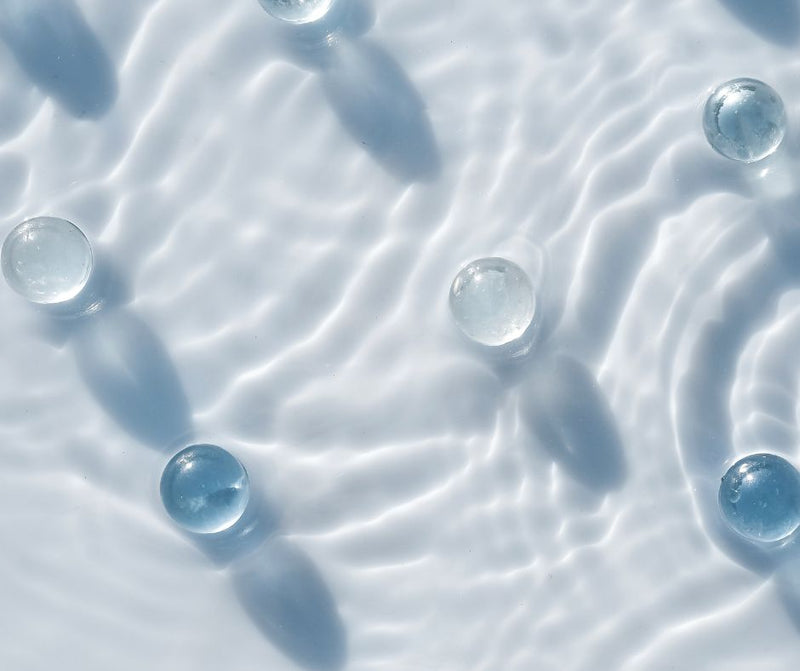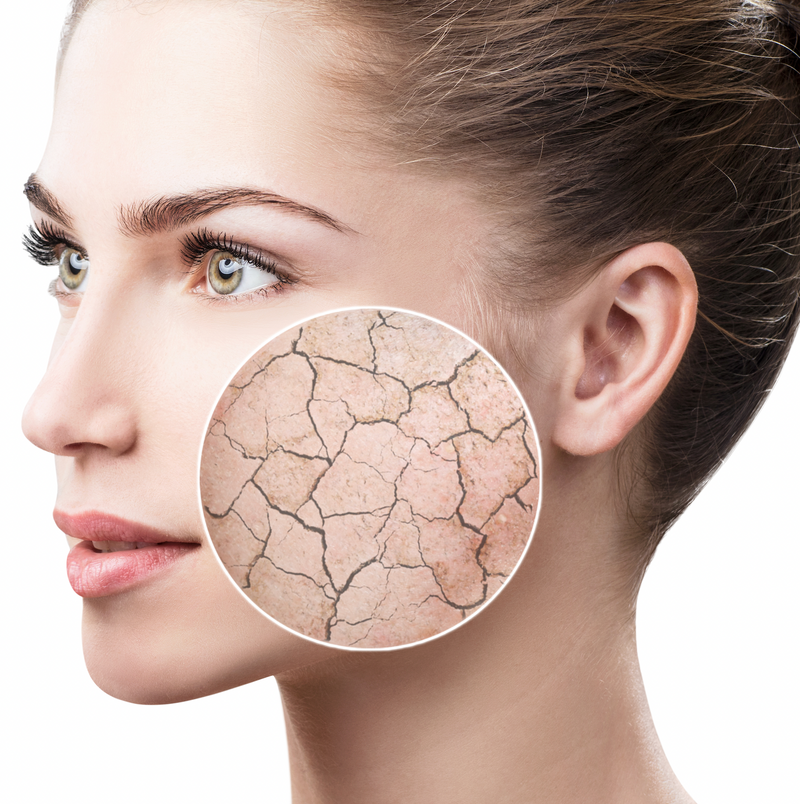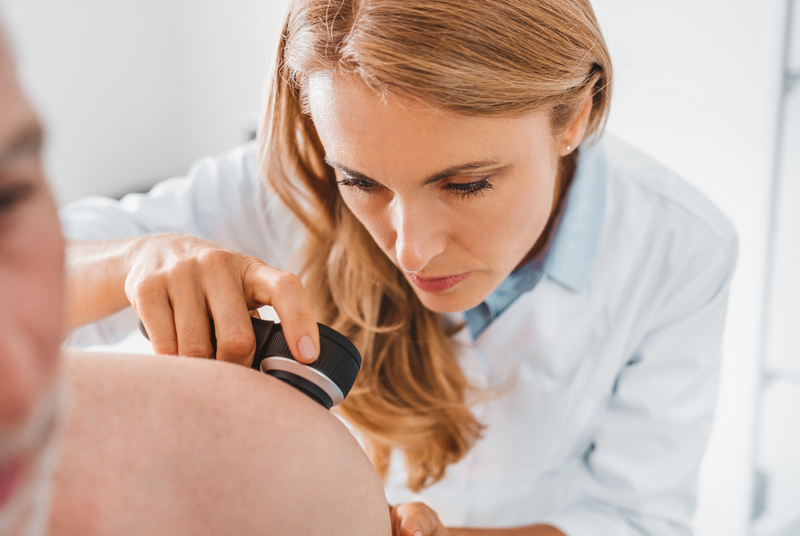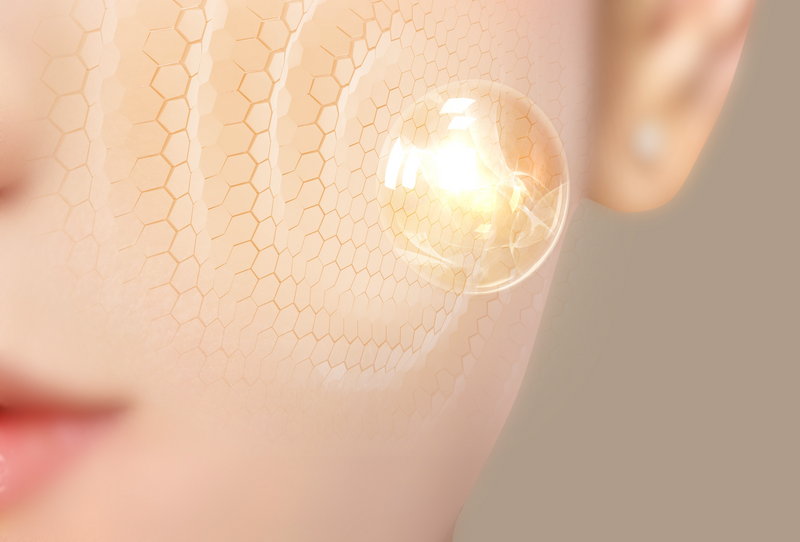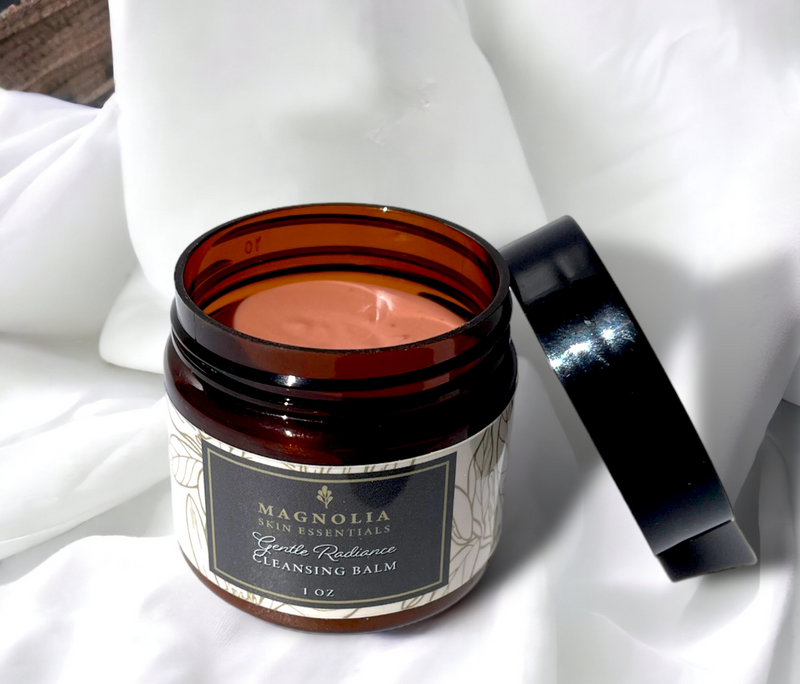From your grandma’s advice to the latest beauty blogger, there is a ton of skincare advice out there that can make it hard to know who or what to believe. Some skincare myths are harmless, and others can cost you money or have more serious implications. With this in mind, we thought we’d share the three most common skincare/skincare product myths we hear, starting with an age-old myth that’s rather benign and ending with one that could have serious consequences for your skin.
Myth 1: Temperature Makes Skin Pores Open and Close
If you’ve always thought this was true, you are not alone. Most people, even some of those in the skincare business, believe that heat or steam will open your pores and cold temps will close them. I’ve even heard people tell me that rubbing your face with an ice cube after using products will “lock in” the moisture and special ingredients. However, skin pores do not have tiny muscles that expand or constrict the size of your pores, no matter how hot or cold your water or your environment is.
What is true is that a clogged pore will appear larger than a clean pore, so it’s important to keep your skin clean. Of course, washing your face to remove dirt and makeup is a must, but did you know that using a toner after you cleanse your skin is a fabulous way to keep your pores healthy and clean? Toners clear away any dirt and debris your cleanser may have missed, but a good toner also hydrates your skin and resets the pH level to normal (5.5-6).
Some toners contain Isopropyl alcohol or isopropyl-derived Witch Hazel, which can dry and irritate your skin. Check out our Rose Aloe Hydrating Toner, which contains isopropyl-free Witch Hazel and no added isopropyl alcohol.
Myth 2: “Medical Grade” or “Therapeutic Grade” Products = Higher Quality
This is just plain false. When shopping for skin care products, you may come across labels like “medical grade” or “therapeutic grade.” But don’t be fooled by these terms — they don't mean anything.
Why? Because the FDA does not use the terms "medical grade" or "therapeutic grade" nor are they any sort of officially certified category. These terms are marketing terms used by companies to imply that their products are of a higher quality or have greater therapeutic benefits than other products, but they are not recognized or regulated by the FDA.
It is important for consumers to be skeptical of marketing claims that use terms like "medical grade" or "therapeutic grade" and to do their own research on the ingredients and efficacy of skincare products before purchasing them.
Myth 3: Natural Ingredients Provide SPF Protection
There is a persistent misconception that certain fruit or vegetable oils contain a natural sunscreen that offers protection against UVA and UVB rays. I would like to put a stop to this error immediately and caution you when you see this promoted on other websites that perpetuate this error.
The National Library of Medicine clearly states the following:
"Some vegetable oils are currently being promoted as a safe alternative to commercial sunscreens. The true UVB photo-protective efficacy of 14 virgin vegetable oils and the suitability of the dilution method for determining their SPF value were evaluated. Oils and standard sunscreens were investigated in vitro by the Mansur's method in Slovakia and in vivo by the ISO method in the Czech Republic. SPF values in vitro (0.1; 0.0; 0.4; 0.2 and 0.2) and in vivo (2.5; 1.2; 2.6; 2.6; and 2.8) of the five most promoted oils (from carrot seed, coconut, raspberry seed, rose hip seed, and wheat germ) were significantly lower than the values reported in the controversial studies. We have shown that the overestimated SPF values of these oils were determined by authors who did not strictly follow Mansur's original methodology. The other eight vegetable oils also provide no or negligible SPF values… this dilution method has proven to be fundamentally flawed in determining the SPF value of substances with such negligible photo-protection as most vegetable oils can provide." Ácsová A, Hojerová J, Janotková L, Bendová H, Jedličková L, Hamranová V, Martiniaková S. The Real UVB Photoprotective Efficacy of Vegetable Oils: In Vitro and In Vivo Studies. Photochem Photobiol Sci. 2021 Jan;20(1):139-151. doi: 10.1007/s43630-020-00009-
Just Because They Claim It Doesn’t Make It True
Many vendors of “all-natural” products make the claim that their products provide a natural SPF, which is terribly misleading and can cause great harm to someone who uses the product in good faith with the assumption they will be protected in the sun, and instead incur a sunburn or worse.
Conclusion
There are countless skincare myths out there but hopefully this article has helped set the record straight on three important ones. You don’t have to become a research analyst when it comes to purchasing skincare, but knowing some of the basic truths can help you avoid falling prey to the myths that could cost you money you don’t need to spend or using a product on your skin that won’t actually deliver the specific results you are expecting.

